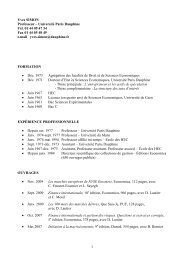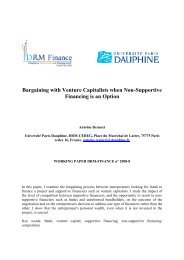Corporate governance and earnings management ... - CEREG
Corporate governance and earnings management ... - CEREG
Corporate governance and earnings management ... - CEREG
You also want an ePaper? Increase the reach of your titles
YUMPU automatically turns print PDFs into web optimized ePapers that Google loves.
It is thus important to find out what practices most British accountants recommended.<br />
Three distinct phases appear: one from 1880 to about 1900, followed by another covering the<br />
years to 1990. From 1990, a third period began, one of intervention by the st<strong>and</strong>ard setters<br />
<strong>and</strong> a fundamental change of conception.<br />
In the first phase that is the subject here, the dominant doctrine considered that goodwill<br />
was not a true asset, <strong>and</strong> should be immediately, or at least rapidly, expensed. The best proof<br />
of the widespread refusal to consider goodwill as an asset is in the writings of Gundry, one of<br />
the few authors in favor of seeing it as a “valuable asset” (Gundry, 1902, p. 663). Gundry<br />
complains of “the general denouncement <strong>and</strong> deprecation of the term as an asset” (1902, p.<br />
663). He quotes Pixley (1909), who includes goodwill in “fictitious assets accounts”, <strong>and</strong><br />
Dicksee, who “appears to deprecate the inclusion of goodwill in any accounts where it can<br />
possibly be avoided” (Gundry, 1902, p. 662).<br />
The lawyers, as in Germany (see below), appear to be the cause of goodwill’s “misfortune”.<br />
Roby (1892, p. 291), for example, points out that in the event of bankruptcy, what he calls<br />
“local goodwill ... will be of little value for any purpose of realization”. He even goes so far as<br />
to say that “the purchase of a goodwill is like the purchase of a lottery ticket” (1892, p. 293).<br />
The argument that goodwill would have no value in a bankruptcy situation was taken up by<br />
(many) accountants, including Knox (in Guthrie, 1898, p. 430), Stacey (1888, p. 605) <strong>and</strong> the<br />
author of a leading article in Time in 1905 (quoted by Dicksee & Tillyard, 1920, p. 99).<br />
So it is hardly surprising that a large number of accountants are in favor of immediately or<br />
rapidly writing off goodwill against profits. Matheson (1884) is one of these, although he does<br />
qualify his statements, only dem<strong>and</strong>ing total disappearance for goodwill that is “small”.<br />
Another author, Bourne (1888, p. 604), is of the opinion that acquired goodwill “should be<br />
gradually written off, so that in a few years the account could be closed”. The reason he gives<br />
is that “it is a prudent course to adopt, not knowing what may happen in the futurity, … to<br />
extinguish as early as possible all intangible <strong>and</strong> fictitious assets”, using the “Revenue<br />
17



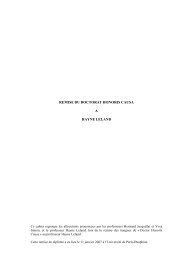
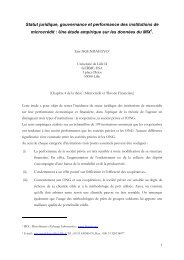
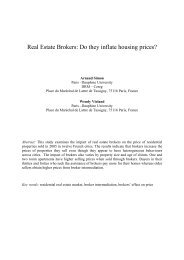
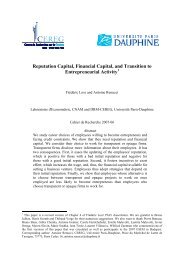
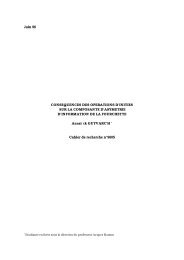
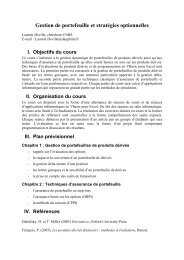
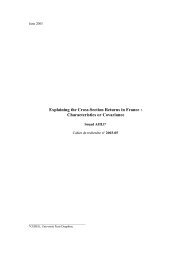
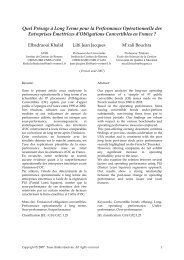

![& 6 ] ^ F ]^ - CEREG - Université Paris-Dauphine](https://img.yumpu.com/33326502/1/184x260/-6-f-cereg-universitac-paris-dauphine.jpg?quality=85)

